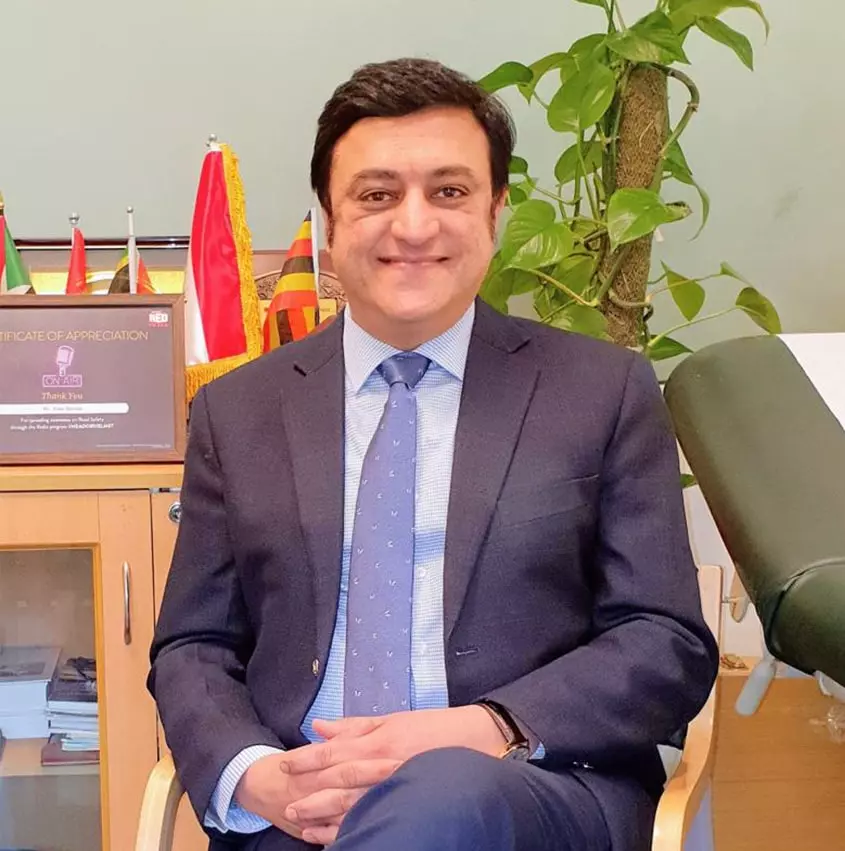What is Nerve Transfer Surgery?
Imagine a rerouted highway. Nerve transfer surgery works similarly. During this procedure, a healthy nerve from a less critical area of your body is carefully rerouted to a damaged nerve. This "detour" allows the healthy nerve to take over the function of the damaged one, potentially restoring muscle control or sensation in the affected area.
Why Consider Nerve Transfer for Spinal Cord Injury?
Spinal cord injuries, especially those at the cervical level (neck), can significantly impact movement and function in the upper limbs. This can be incredibly frustrating for patients, particularly those with quadriplegia (paralysis in all four limbs). Nerve transfer surgery offers a beacon of hope for patients with specific types of injuries.
Benefits of Nerve Transfer Surgery:
Improved Hand Function: Regaining hand function is a top priority for many patients with tetraplegia. Nerve transfer surgery can potentially restore movement in the hands, allowing for greater independence in daily activities like eating, dressing, and self-care.
Enhanced Quality of Life: By restoring arm function, nerve transfer surgery can significantly improve a patient's ability to perform daily tasks and participate in activities they may have once enjoyed. This can lead to a dramatic improvement in overall quality of life.
Understanding Spinal Cord Injury and Nerve Function:
The spinal cord acts as a vital communication highway between your brain and the rest of your body. When cells in the spinal cord are damaged, they cannot be repaired. Nerves that exit the spinal cord above the injury site allow you to control muscles. However, nerves below the injury lack this connection to the brain, resulting in paralysis.
Causes of Spinal Cord Injury:
Accidents (car crashes, falls)
Violent acts (stabbing, gunshot)
Sports injuries
Electrical accidents
Symptoms of Spinal Cord Injury:
Difficulty walking or loss of movement in limbs
Loss of bladder or bowel control
Numbness or tingling in extremities
Pain or stiffness in the neck or back
Types of Nerve Transfers:
There are two main types of nerve transfers, each addressing different aspects of function:
Motor nerve transfers: These procedures aim to restore muscle movement and control. For example, a nerve previously used for wrist flexion might be transferred to control elbow extension.
Sensory nerve transfers: These procedures focus on recovering sensation in an area. This can help prevent skin ulcers and potentially manage chronic pain associated with nerve damage.
Nerve Transfer Techniques:
Nerve transfer surgery is a delicate procedure performed under general anesthesia using microsurgical techniques. Here's a simplified breakdown of the process:
Exposure: The surgeon carefully exposes both the healthy and injured nerves.
Evaluation: Electrical stimulation is used to assess the health and function of the nerves.
Transfer and Connection: The healthy nerve is meticulously transferred and connected to the injured nerve using specialized sutures.
Regeneration: Over time, the nerve fibers from the healthy nerve will regenerate through the pathway provided by the injured nerve.
Recovery: After surgery, a dedicated rehabilitation program is crucial to help patients regain function and control in the affected area.
Nerve Transfer Surgery: Step-by-Step
Nerve transfer surgery involves meticulous steps to restore function using a healthy nerve to reinnervate a damaged one. Here's a breakdown of the key stages:
Access: Surgeons make precise incisions to expose both the healthy donor and injured recipient nerves.
Nerve Assessment: Electrical stimulation devices carefully evaluate the health and functionality of both nerves.
Transfer and Connection: The healthy donor nerve is carefully transferred and meticulously sutured to the recipient nerve, ensuring optimal alignment.
Regeneration: Over time, nerve fibers from the donor nerve regenerate through the injured nerve pathway.
Closure: Finally, the surgeon closes the incisions with sutures.
Treatment and care after surgery
After surgery, your arm will be immobilized in a splint or cast for several weeks to protect the repair site. You will then begin occupational therapy to help you relearn how to use your muscles.
Recovery from nerve transfer surgery can be a long process. It can take up to 18 months to see the full results of surgery. However, nerve transfer surgery can be a life-changing procedure for people with spinal cord injuries.
Here are some tips for caring for your arm after nerve transfer surgery [2]:
Follow your doctor's instructions carefully regarding wound care and pain medication.
Attend all of your occupational therapy appointments.
Be patient with your recovery. It takes time for nerves to regenerate.
Avoid strenuous activity that could put stress on the surgical site.
Cost of Nerve Transfer Surgery:
The cost of nerve transfer surgery can vary depending on the complexity of the procedure, hospital stay, and other factors. Please contact Max Hospital, Gurgaon, for a personalized cost estimate.
Why Choose Max Hospital, Gurgaon, for Nerve Transfer Surgery?
At Max Hospital, Gurgaon, we understand the challenges faced by patients with spinal cord injuries. Here's what sets us apart:
Experienced Neurosurgeons: Dr. Arun Saroha and his team possess extensive experience in performing nerve transfer surgery and other complex neurosurgical procedures.
Advanced Facilities: Max Hospital is equipped with cutting-edge technology, including microsurgical instruments and sophisticated imaging equipment, to ensure optimal surgical outcomes.
Comprehensive Care: Our team provides holistic care, encompassing pre-operative evaluation, surgery itself, and a comprehensive rehabilitation program tailored to your specific needs.
Dr. Arun Saroha, a leading neurosurgeon at Max Hospital, Gurgaon, offers nerve transfer surgery as a potential treatment option for patients with specific types of spinal cord injuries.
If you are interested in learning more about nerve transfer surgery as a potential treatment option for your spinal cord injury, contact Max Hospital, Gurgaon, to schedule a consultation with Dr. Arun Saroha. Our team is here to answer your questions and help you explore all available treatment options.



